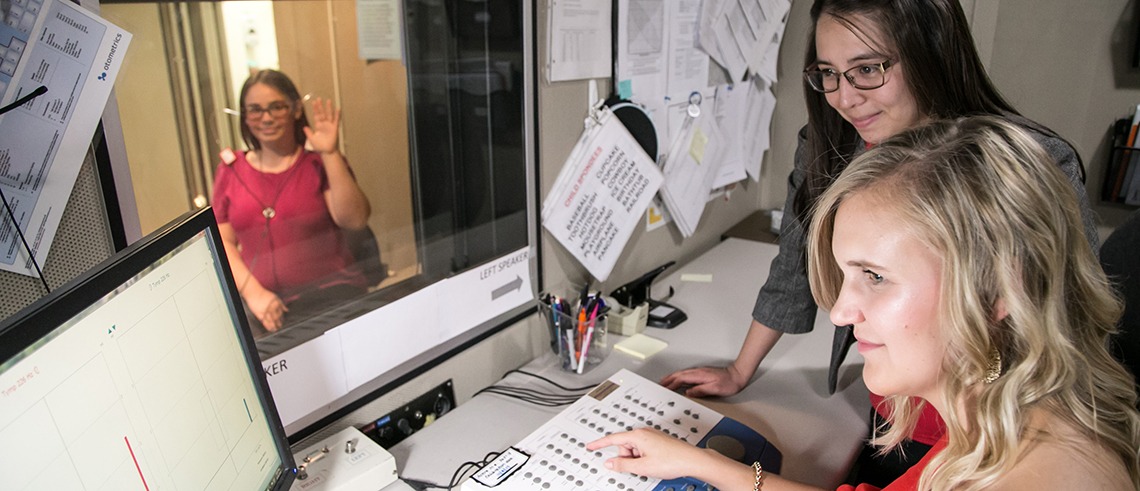
Doctor of Audiology
Our Doctor of Audiology program (AuD) is a four-year plan of study and clinical training that fully prepares students for a clinical career in Audiology and meets all of the academic and clinical requirements for certification by the American Speech-Language-Hearing Association in Audiology as well as the Arizona Department of Health Services Licensing requirements.
Program Overview
Academic coursework covers hearing science and the nature and treatment of hearing and balance disorders across the lifespan. Clinical practica in the UA Speech, Language, and Hearing Clinic and off-campus placements provide a full array of experiences. Our students have the opportunity to engage in research, and many become co-authors on peer-reviewed publications.
A Multicultural Bilingual Certificate Program is also available to students pursuing the Doctor of Audiology degree.
It is possible for students to pursue a research PhD as well as the clinical degree, either in-sequence or concurrently. Individual plans can be discussed with faculty mentor or Chair of the PhD committee.
Application instructions are here.
SLHS has a tradition of student participation in ASHA's Minority Student Leadership Program (MSLP), and we have an active local chapter of the Student Academy of Audiology!
Clinical Education Overview
Program Accreditation
The Doctor of Audiology (Au.D.) residential education program at the University of Arizona is accredited by Council on Academic Accreditation in Audiology and Speech-Language Pathology of the American Speech-Language-Hearing Association, 2200 Research Boulevard, #310, Rockville, Maryland 20850, 800-498-2071 or 301-296-5700.
Student Achievement Data
Student Achievement is evident by program completion rates, performance on national professional examination (PRAXIS), and employment information on graduates.
Program Description and Requirements
Graduate students in our program prepare an individualized plan of study with guidance from their faculty advisor. A detailed description of the academic and clinical training requirements is included in the AuD Student Handbook (AuD Cactus Book).
Student Funding
Some funding opportunities are available for students. Students desiring financial aid should indicate this on the Department application form. Students may also be awarded Graduate Tuition Scholarships that cover some portion of the full tuition amount. The University of Arizona Scholarships and Financial Aid provides guidance and support for financial aid application. Scholarship Universe provides information on all types of scholarships. Our department offers a variety of scholarships and awards.
If you are interested in visiting the UA campus and our department, please see the Events section for designated Prospective Student Visit days. On these days you will meet academic faculty, clinical faculty, and current students and you will take a tour of the Clinic and research laboratories.
Read more on how to share concerns or complaints about the program or compliance with standards and regulations.
The Department of Speech, Language, and Hearing Sciences is committed to creating and maintaining an environment free of discrimination -- in the classroom, the clinical setting, and the workplace. The University of Arizona Office of Institutional Equity provides education and support for these efforts.
The University of Arizona is an equal opportunity, affirmative action institution. The University prohibits discrimination in its programs and activities on the basis of race, color, religion, sex, national origin, age, disability, veteran status, sexual orientation, gender identity, or genetic information and is committed to maintaining an environment free from sexual harassment and retaliation.

